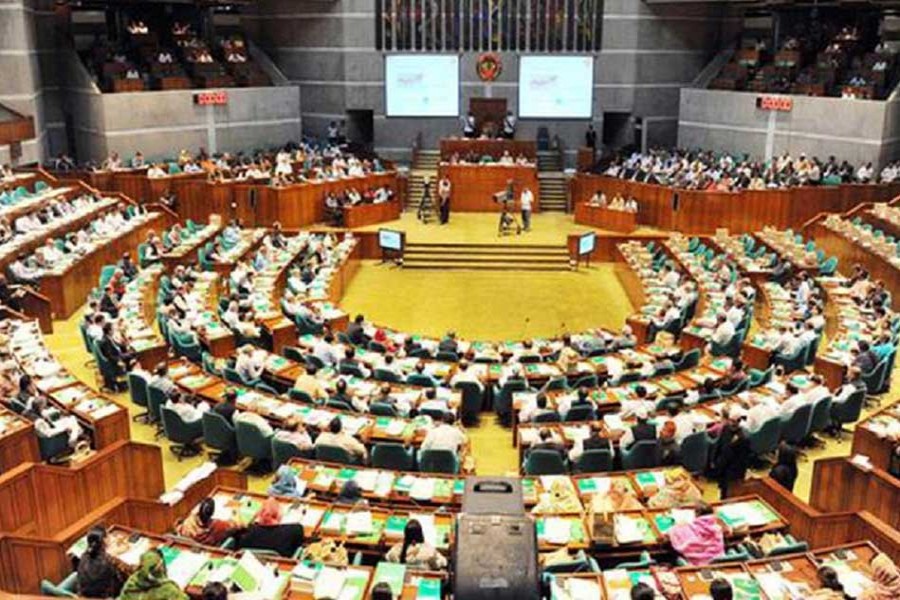The bill passed in the Jatiya Sangsad (national parliament) Wednesday last to bring surplus funds belonging to 61 state and autonomous agencies to state coffers, possibly, carries the longest title ever given to any piece of legislation.
The 'Deposition of Surplus Money of Self-Governed Agencies including autonomous, Semi- Autonomous and Statutory Government Authorities and Public Non-Financial Corporations to the National Exchequer Bill 2020" being non-conventional in nature generated enough heat in the House where the ruling party enjoys brute majority.
The lawmakers belonging to both BNP and Jatiya Party, a poll-time ally of ruling Awami League and the largest opposition in parliament, made a blistering attack on Finance Minister AHM Mustafa Kamal.
The opposition members termed the act a 'black' one, alleging that the government after 'destroying the banking sector and the capital market' has now set its eye on the funds of autonomous bodies.
The opposition, as a mark of protest, in an unprecedented move withdrew their proposals seeking amendments to the bill in question. The BNP lawmakers also did stage a walk-out.
The finance minister, however, defended the bill saying that since the government owns the autonomous and semi-autonomous bodies, the surplus funds of the latter do also belong to the government.
The finance minister is right in his logic. But the move contradicts the justification behind creation of the autonomous and semi-autonomous organisations that do legally enjoy certain degree of operational freedom. Fiscal operations are also part of that freedom.
These entities, surely, are not in favour of the new law, but, for obvious reasons, they could not oppose it.
It is, however, not known whether or not the acts of parliament through which the autonomous, semi-autonomous bodies and statutory government authorities have come into being would contradict the government move or that issue has been taken care of in the new law.
The size of idle money belonging to the 61 autonomous and semi-autonomous bodies reportedly is huge--- more than Tk 2.0 trillion. However, the volume would be greatly reduced when these entities would deduct their overall operational costs and other requirements in line with the provisions laid out in the new law.
The move to take away the idle money belonging to the autonomous and semi-autonomous bodies is seen by many as an act of desperation on the part of a cash-strapped government.
Substantial shortfall in tax revenue earning, high bank borrowing and a deplorable state of the capital market and the banking industry have, in fact, exposed the government to strong criticisms from different directions.
The finance ministry could, possibly, avoid the latest piece of legislation had it asked all the autonomous and semi-autonomous entities to service their debt to the government, either in part or full, immediately. Most of these agencies owe to the government a huge amount of money that they have taken from time to time for implementing development projects and meeting other necessities.
Besides, the deposition of the surplus funds to the government coffer by the autonomous and semi-autonomous entities is likely to nullify, at least, partially the move to bring down the lending rate by banks to single digit. The government asked all its entities to deposit 50 per cent of their funds with the private banks and the rest with the public sector banks. If the government takes away a substantial amount of idle funds, the banks might find it difficult to mobilise enough resources for lending. In such a case, the private sector stands to suffer. Already, the flow to banks' funds to the private sector has reached at its lowest level. Any further reduction in the same might cause serious disruption to the private sector growth.
In a market-oriented economy, the private sector is supposed to play the primary role, particularly in creation of new jobs. The main objective behind the public sector investment needs to be the creation of an environment that would allure the private sector to make investment in real sectors of the economy and help create new employment opportunities.


